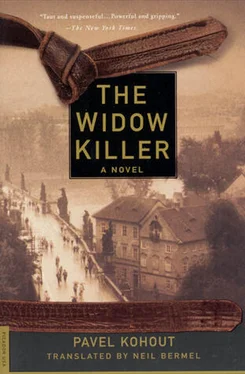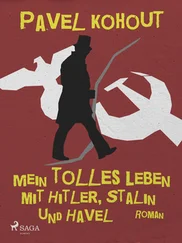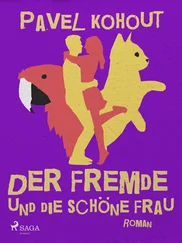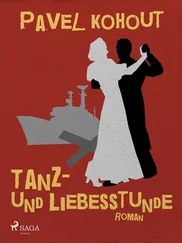For a moment that numb silence in his soul threatened to rip wide open; he nearly sank to his knees and wept bitterly, almost jumped into the pit to huddle on the wooden lid. He felt someone’s palm clasp his arm. It was Beran, guiding him to the lip of the grave. Together they threw a handful of earth on the coffin. And afterward, as he strode off down the grave-lined path toward the car, he heard a quiet voice behind him.
“Good work, Morava!”
Beran continued in the vehicle from the front seat.
“Today you’ll have to interrupt your investigation and be my personal adjutant for a day. I’ve become a commander in my old age. The Germans were right to hang that bogeyman Buback around our necks, you know.”
“Why didn’t you even hint to me that—”
“You’re not made for deception, or so I felt. I wanted you to keep your credibility. Jitka was all I needed.”
“She knew?”
“Of course. She was my right-hand man. I had to order her not to breathe a word to you until I gave permission.”
Grief wrung Jan Morava’s heart again; he’d barely begun to know the girl now buried deep in the stony soil.
“Live in the future, my good friend,” Beran said knowingly. “Your life is only beginning, even though you may think it’s already ended. May she have a long life inside you. Do you know how to use it?”
With no transition he nodded at Morava’s holster and pistol.
“No,” the younger man answered, complying with the change of subject. “I started right when Rajner lowered the number of employees approved to carry weapons.”
“Aha. Well, now we’re raising it again. Take it out of the holster and look straight ahead.”
He obeyed and examined the piece of steel as if it were an unfamiliar animal. Beran leaned over from the front seat, took the weapon and demonstrated.
“This is how you remove and replace the magazine. This is how you take the safety off and put it on. We won’t take it apart now. And then you just squeeze this. Try it.”
Morava obediently slid the magazine out and back in, flipped the safety off and then squeezed the trigger.
A deafening shot rang out and the interior of the vehicle filled with acrid dust.
Litera, shaken, careened onto the fortunately deserted sidewalk.
They stopped.
Morava blushed and stared at the upholstery of the front seat. A small black hole had appeared in it.
Beran bent over and picked up the cartridge, which had flown off to one side and rebounded to land on the floor.
“That was my stupid mistake,” he finally said. “At least you won’t forget that there’s one in the barrel. And never to point it at people. Ugh, what a fright!”
Love,” Grete said, “you’re going I don’t know where, and all I can do is cross my fingers for you. But when you’re doing I don’t know what, don’t forget there’s someone waiting for you who needs you. Just so you’ll remember to stay alive and not go belly-up.”
First Buback needed to stop at the central office. There he checked that his full powers were still in force; apparently Schörner’s star was still at its zenith. However, the commanders’ assembly, which had seemed so promising, was unlike anything he had ever seen before in that building. All the former masters of the world (as Grete had nicknamed them) and their flunkies were nervously chain-smoking and acting slightly demented. The colonel was still in a meeting at the Castle with K. H. Frank. The two of them were trying to contact Fleet Admiral Dönitz; as the Führer’s replacement, Dönitz would give them clear instructions on the course of the war and would resolve the jurisdictional dispute in the Protectorate, where overnight Mitte’s army seemed to have seized control. Buback heard the wildest rumors around him, and his head spun: which should he take seriously and pass on to the Czechs, if he truly wanted to make a difference? Finally Meckerle’s aide-de-camp entered.
“Achtung! Der Gruppenfuhrer!”
Everyone flew to their feet; there were a few seconds of tension— which lieutenant general had Berlin dispatched here from the remainders of the Reich? — and then surprise. In marched the old familiar colonel.
For the first time there was no Heil Hitler. Meckerle motioned them to sit with a sharp flap of his hand and curtly advised them that Dönitz himself had just promoted him. Then he laid out in just five minutes what Buback needed to know. Measures for a military occupation of Prague were to be implemented immediately. At noon, units stationed around the city would begin to secure strategic points, and that night the army vanguard would arrive. The latter would crush any resistance and secure the city, so that elite divisions and troops could use it as a transit point before the Russian pincers closed in on them from the north and south. They had chosen a time when employees of large firms would be headed homeward for Sunday, and most Czechs would be busy in their gardens. General Vlasov’s corps of former Russian war prisoners was pressing toward the capital of the Protectorate, and this complicated the situation even further. The Russians all faced charges of high treason at home, and they were wreaking havoc with the Germans’ plans by trying to break through to the advancing American army ahead of the Soviets.
“This will all be clarified in a new political doctrine which has just been decoded,” Meckerle finished. “It will be announced in a secret order at fourteen hundred hours. Dismissed!”
He disappeared without a good-bye. Buback, who sensed that they would be served up more fantasies and hot air that afternoon, already knew enough. Old dog or no, he could still learn a few new tricks; he would betray a regime he had sworn allegiance to, in order to uphold values that every normal, feeling person held dear.
His first reward was a dangerous surprise. While central Prague still seemed to be firmly in German hands, he met armed Czechs as soon as he turned off Národni Avenue. They were policemen, true, but their number and weaponry indicated that the Reich had not sent them here. His German caused a sharp change in their behavior.
“Hands behind your head!” said the sergeant in charge.
He obeyed and calmly looked on as they frisked him and studied his papers, which proved him to be a member of the Reich’s criminal police force with the rank of chief inspector. A moment before the Czech, Buback noticed for the first time a round stamp placed there in Bredovská Street when he took up his post: GEHEIME STAATSPOLIZEI PRAG.
“Gestapo!” said the commander of the security line, more in amazement than anger, but instantly Buback was among enemies. He had seen this sudden eruption of hatred in the other occupied cities he had hastily left, and knew where it would probably end. Guardians of public order, who spent years in the Germans’ pay suppressing their countrymen’s resistance, were often the first to take revenge on their old masters, either to avenge their former powerlessness or to secure their jobs under the new regime.
“Can we rough him up a bit?” asked an aggressive, pasty-faced kid.
“I’m a criminal detective and am cooperating with your colleague Morava from Number Four,” Buback said to the man who had called him Gestapo, trying not to betray any reaction to the Czech words.
“Don’t know him,” snapped the sergeant.
“He’s an assistant detective—”
“A spy!” chipped in another policeman. “He’ll tell them we have guns and they’ll send the tanks in!”
“No chance. Teplý! Votava!”
“Here!”
The new men surrounded Buback with practiced ease.
“Take him to Number Four. And if he’s lying, put him behind bars!”
“Why not just take him down to the cellar and bump him off?” the pasty face said.
Читать дальше












